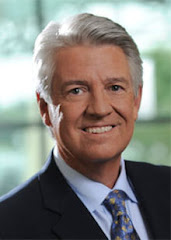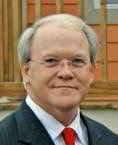
Baptist leaders often say that, in order to prevent sexual abuse in churches, congregants should be educated to recognize the signs of potential abuse. But what do you do when you see the signs, and no one else wants to see them?
What do you do when what you see involves the minister, and everyone else just wants to ignore it?
That’s what happened to Nancy at her Southern Baptist church in Georgia. Her story is a good illustration of why educational efforts will never be enough. There must also be effective accountability systems that include a process by which clergy conduct can be reviewed by those outside the minister’s circle of influence.
Nancy is plenty educated. She’s a college psychology professor. In the past, she has worked as a counselor for sexual abuse survivors, and she herself is an abuse survivor. She’s also a mom. So when Nancy saw signs of potential abuse, she knew something needed to be done.
I have changed some of the details of Nancy’s story in order to protect the young girl’s sense of privacy. However, in reality, there is nothing unusual about this story. The elements are far too familiar. We’ve seen similar stories in countless other Baptist churches across the country – churches in which ministers with troubling allegations were simply allowed to move on.
For Nancy, it started about a year ago when she noticed on Facebook that one of their ministers, Steve, was being very flirtatious with a 15-year-old girl. He was also overly friendly with her at church.
Minister Steve is married and has kids of his own. He usually preached the sermon on Sunday evenings and Wednesdays. He also served as a Sunday School teacher.
As things progressed, minister Steve started posting more and more Facebook comments about the girl. He posted pictures of himself and the girl together on a church trip, and the pictures had inappropriate captions. Then he posted a comment about how she had given him a great massage.
Nancy recognized these things as “red flags.” She also knew that minister Steve had been accused of sexual harassment at a company he worked for previously. The accusations were corroborated by another employee who had witnessed some of Steve’s conduct; the company began an investigation; but Steve simply resigned in the middle of it.
Nancy went to talk to the girl’s mom. She’s a mom who is on her own with three kids, one of whom has special needs. Her only source of income is her part-time secretarial job at the church.
The mom immediately told Nancy that she had the same concerns, but was afraid to even think about it. The mom then told Nancy about still more of minister Steve’s disturbing conduct. He had been texting and calling the girl, having unsupervised workout sessions with her, giving her skin-tight workout clothes, asking for massages, and “accidentally” touching her during workouts. He had also given the girl a car.
After talking with Nancy, the mom sent minister Steve a short note asking that he not have further contact with her daughter. She said she felt uncomfortable. The note was honest and direct, but all it asked was for Steve to leave the girl alone.
Minister Steve responded by rallying his forces. He told people at the church that the girl’s mom was spreading lies about him. A deacon cornered the girl’s mom and told her that, if she were a better mother and had spent more time with her daughter, this wouldn’t have happened.
(If this is the sort of thing a deacon says to the mom, I wonder what he may have said to the girl?)
After that, as Nancy describes it, “all hell broke loose.” Minister Steve started raging and retaliating in emails, on Facebook, in phone calls, and at the church. He figured out that Nancy had supported the mom, and so he also targeted Nancy and her husband. He cursed and yelled and threatened to sue people.
Ultimately, the deacons held a meeting, but they decided not to do anything.
So, for a while, minister Steve kept right on at that church, smiling and shaking hands as though nothing had happened. Meanwhile, Nancy and her husband became outcasts. Some church members won’t even look at them or speak to them. People say they are “gossips” and “trying to bring the church down.” All of this has affected Nancy’s own kids. This was, after all, their longtime church home.
The senior pastor and deacons have made it clear that the matter is not to be discussed. No one has tried to reach out to the girl. She seems “scared and ashamed,” says Nancy, who is understandably concerned that the girl has not told everything that happened.
But the mom has now gone back to her quiet ways. As Nancy says, she has learned that, if she doesn’t want to jeopardize her job, “she should simply keep her mouth shut.” So the mom isn’t interested in talking to the police or to an attorney.
Nancy says she knows there were originally other church members who had concerns, but in the face of such abysmal leadership, no one else was willing to stand up. So they just went back to their “singing, preaching, programs and donuts.”
It now appears that minister Steve has left the church. He just stopped showing up. So this one girl is now safe. But Nancy knows the pattern. Minister Steve will probably move on to some other church and other kids will be at risk.
That’s how it works in Baptistland. A single church can make a man a minister based on the lowest of possible standards, or based on virtually no standards. But once he’s a minister, he can easily migrate to other churches.
Nancy is deeply troubled, but she doesn’t know what more she can do. Here are her questions, in her own words.
1. “How do we let the next unsuspecting victims know? The girl’s mother isn’t going to do anything. Our Baptist Association won’t do anything. Our church won’t do anything. I don’t trust the leaders of the next church to do anything. So what can we do?”
2. “Do you stay in a church that refuses to hold people who hurt others, especially children, accountable? Do you stay in a church with poor, weak, and even ungodly leadership that is only concerned with covering things up and making the whole thing go away?”
3. “If you DO choose to leave the church, do you find ANOTHER Baptist church where leadership probably wouldn’t step up to the plate either? I am feeling so disillusioned about churches and their leadership in general. I have begun to feel that many of them are playing church and this isn’t real.”
4. “Everyone we know is happy with the status quo. If it doesn’t affect or concern them (or even if it does), they seem content to sweep it under the rug. We were very active in our church, along with our children, but this has caused us so much hurt, discouragement and disillusionment. I now have so many questions and concerns about things I’ve never questioned in my 41 years of being in Baptist churches.”
 Gospel Today magazine is catching a lot of flak for its decision to feature the scandal-plagued pastor Eddie Long on the cover of its December issue. It has the appearance of being little more than a public-relations fluff piece for a prominent pastor who is currently embroiled in lawsuits alleging clergy sex abuse.
Gospel Today magazine is catching a lot of flak for its decision to feature the scandal-plagued pastor Eddie Long on the cover of its December issue. It has the appearance of being little more than a public-relations fluff piece for a prominent pastor who is currently embroiled in lawsuits alleging clergy sex abuse.





























